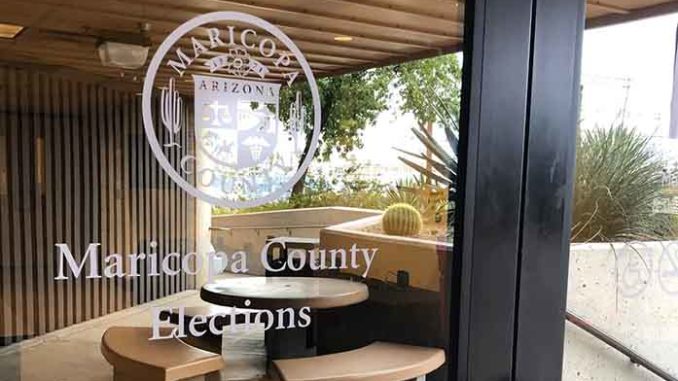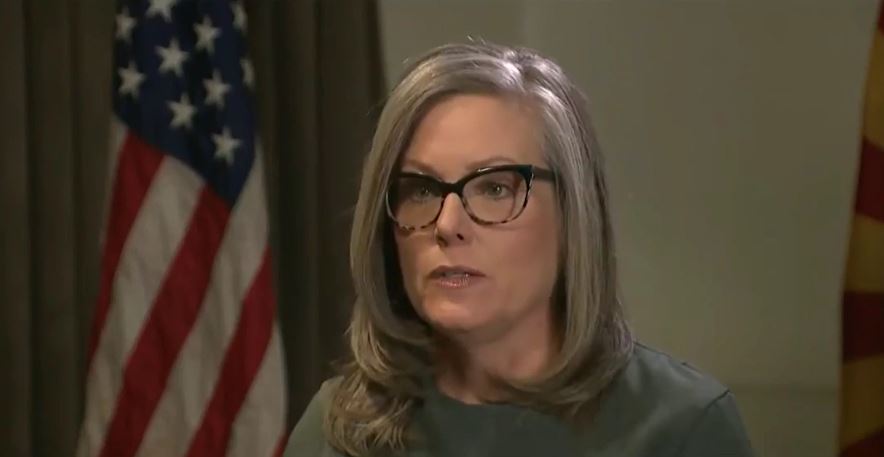
by Staff Reporter | Feb 8, 2026 | News
By Staff Reporter |
New polling reflects a continued high level of support for President Donald Trump’s mass deportations.
Earlier this week, the White House shared two sets of polling data that declare opinions of deportation remain positive.
Republicans, independents, and swing voters who responded all shared majority positive opinions on mass deportations in one poll from Cygnal: Republicans, 97%; independents, 59%; and swing voters, 64%. Only 25% of Democrat respondents expressed support for mass deportations, and 67% said they opposed.
This polling data came from just over 1,000 voters likely to vote in this year’s midterm general election.
A significant majority of all respondents also aligned when it came to interpretations of immigration law and enforcement.
73% of all respondents agreed that entering the country without permission constitutes breaking the law. 61% overall supported deportations for illegal aliens. 64% determined that illegal aliens were a very to somewhat severe problem: 33% of Democrats, 60% of independents, and 97% of Republicans.
A slimmer majority amounting to 58% of respondents rejected the Democrat-led proposal to defund Immigration and Customs Enforcement (ICE). Less than that, 54% overall, supported ICE enforcing federal immigration laws.
The Democrats’ fight within Congress to defund ICE mustered a partial shutdown this week.
The shutdown arose beyond Democrats’ general disagreement with mass deportations. Democratic leaders oppose Department of Homeland Security (DHS) approaches to carrying out immigration enforcement. Two American activists in two separate incidents died last month after their protests against ICE turned into interference with law enforcement operations.
Both individuals, Renee Good and Alex Pretti, were shot by ICE agents after refusing law enforcement orders.
Anti-ICE activists have also taken to protesting across Arizona. The Phoenix ICE office has been vandalized repeatedly, sometimes with death threats, and been subjected to protests that have devolved into rioting as activists resisted law enforcement orders.
This week’s partial shutdown was much shorter-lived than the longest one in America’s history that occurred last year, lasting over 40 days from October to November. President Donald Trump signed a spending package lifting the shutdown on Tuesday.
The second poll shared by the Trump administration came from Harvard University Center for American Political Studies (CAPS) and Harris. That polling reflected that 73% of Americans believe criminal illegal aliens should be deported. 2,000 registered voters served as respondents. Most of the voters said that price increases, inflation, and affordability along with immigration were their top two concerns.
Overall, the Harvard-Harris polling found that Trump’s approval rating on key issues (the economy, immigration, foreign affairs, administering the government, handling inflation, reducing the cost of government, returning America to its values, tariffs and trade policy, and fighting crime in America’s cities) ranged from 39% to 47%. The president’s highest rating level was 51% for response to anti-ICE protests in Minneapolis.
Overall, 38% of voters said the country was on the right track: 74% of Republicans, 15% of Democrats, and 24% of independent voters. Likely voters, not weighted in the median total, were at 43%. Congressional approval was worse: 32% overall.
35% of overall voters said their financial situation was improving, and 40% said it was declining.
Other polls have found dramatically different sentiments among the American people. Another three-day poll conducted by Ipsos determined that 62% of Americans believe current ICE enforcement activities go too far.
AZ Free News is your #1 source for Arizona news and politics. You can send us news tips using this link.

by Staff Reporter | Feb 7, 2026 | News
By Staff Reporter |
In the latest escalation between Maricopa County leaders’ legal jockeying for elections authority, the Board of Supervisors reportedly subpoenaed staff with the Recorder’s Office.
Recorder Justin Heap issued a statement on Tuesday accusing the board of attempting “to intimidate and bully” his staff and “unduly influence” the pending court ruling. The recorder and board have been fighting for months in the Maricopa County Superior Court over who has proper authority over which elections administration powers.
“Their actions are beyond inappropriate,” said Heap. “My staff has bent over backwards to work with the Board, yet despite our earnest efforts the Board continues to engage in unhinged, emotional, and unprofessional behavior.”
Within the hour of Heap’s post, supervisor and former chair Thomas Galvin quoted Scripture that appeared to allude that the truth of the matter was beyond Heap’s remarks.
“‘And you will know the truth, and the truth will make you free.’ – John 8:32,” posted Galvin.
Galvin also shared a video from Chair Kate Brophy McGee addressing the accusations from Heap. McGee said their subpoena concerned an apparent conflict between Heap’s remarks during his annual budget request and sworn testimony on voter disenfranchisement from Heap’s staff, both of which took place last week on separate days.
“At Maricopa County, we count every lawful vote. That’s why we take any claim of disenfranchisement seriously, and have asked the Recorder’s office to provide further testimony regarding conflicting claims recently made by Recorder Heap and his staff,” said McGee. “This is an important issue and we need straight answers. If any voters are being disenfranchised, we will fix it immediately. If not, then the Recorder’s office must clarify to the court why it provided such testimony. Maricopa County voters need the truth.”
During last week’s board hearing, Heap said no voters had been disenfranchised since he took office in January 2025.
“We stated that we want this machine to make sure that we don’t disenfranchise voters. We didn’t say that any voters have been disenfranchised since I took office in the administration,” said Heap.
Two days earlier, Heap’s chief of staff, Sam Stone, issued sworn testimony in the Maricopa County Superior Court that disenfranchisement was occurring in the present.
“We had two potential places we would have made the substantial changes to one or the other to bring this in, to not disenfranchise voters, which is happening now,” said Stone.
Stone directed the court to testimony from Janine Petty, senior director of voter registration, who said disenfranchisement occurred during the 2024 election when certain provisional ballots were processed as federal-only due to time constraints even though they were voted as a full ballot.
“[Those provisional ballots] would be counted, but they would not be afforded the full ballot. So they would be duplicated by the elections board to be a federal ballot, when that voter was entitled a full ballot and voted a full ballot,” said Petty.
Heap earned a legal win on Wednesday against the board after the Maricopa County Superior Court rejected the board’s move to stop America First Legal (AFL) from representing Heap in court going forward.
AFL sued the board on behalf of Heap last summer over the contested elections administration powers, a battle stemming from a “lame duck” agreement between the outgoing recorder, Stephen Richer, and a board majority also on their way out.
AZ Free News is your #1 source for Arizona news and politics. You can send us news tips using this link.

by Staff Reporter | Feb 6, 2026 | News
By Staff Reporter |
Republican lawmakers in the Arizona House are continuing their investigation into Gov. Katie Hobbs over an alleged pay-to-play scheme.
On Monday, House Speaker Steve Montenegro (R-LD29) announced the House advisory team obtained outside counsel from out of state to investigate the connection between Hobbs and a Glendale group home, Sunshine Residential Homes, independently.
Montenegro said in a statement that the connection between the governor and the group home constituted special treatment derived directly from political donations. The lawmaker said that the addition of outside counsel was necessary to achieve the full independence an investigation of this significance needed.
“The advisory team has done serious, disciplined work, and their recommendation to bring in independent counsel is the right next step,” said Montenegro. “The House will not look the other way when taxpayer dollars and vulnerable children may have been used as leverage in a political scheme. We will follow the facts, consider the findings, and ensure transparency and accountability in state government. Arizonans deserve nothing less.”
The outside counsel is Justin Smith with the Missouri-based James Otis Law Group. The law group was founded by Trump’s solicitor general, D. John Sauer.
Smith is the listed counsel in President Donald Trump’s lawsuit against a woman, E. Jean Carroll, alleging battery and defamation. Carroll sued Trump for defamation after he publicly denied her 2019 claims of him sexually assaulting her in the 1990s.
That petition is before the Supreme Court.
According to Montenegro, Smith will conduct records review and interviews. All findings will go directly to the advisory team and House leadership.
Advisory team members are State Reps. Selina Bliss (R-LD1), David Livingston (R-LD28), Matt Gress (R-LD4), Quang Nguyen (R-LD1), and Neal Carter (R-LD15).
Last November, that advisory team was created to follow up on 2024 media reporting alleging the pay-to-play scheme within the Arizona Department of Child Safety under Hobbs’ direction.
In the summer of 2024, the Arizona Republic reported that Sunshine Residential Homes received a unique 30% rate increase following a donation exceeding $400,000 to Hobbs and the Arizona Democratic Party.
Much of 2024 was spent attempting to determine who, if anyone, was fit to conduct an investigation into the allegations against the governor.
One of the earliest requests came from Republican State Sen. T.J. Shope, who asked Attorney General Kris Mayes to investigate. Mayes complied initially, but was immediately hit with other Republican lawmakers and state leaders asking her to recuse herself due to an alleged conflict of interest.
State Rep. Matt Gress asked Maricopa County Attorney Rachel Mitchell and Auditor General Lindsey Perry to investigate.
All three leaders are investigating. Mitchell and Perry are coordinating on one investigation, while Mayes will conduct her own investigation.
As reported last November, the work of the House’s advisory team will coordinate with these parallel investigations by the auditor general and county attorney, and the attorney general.
In February 2024, Sunshine Residential Homes owners Elizabeth and Simon Kottoor maxed out their donations to Hobbs’ reelection campaign. Each gave the maximum $5,400 contribution amount.
In October 2022, the Kottoors gave Hobbs’ initial gubernatorial campaign $10,000.
AZ Free News is your #1 source for Arizona news and politics. You can send us news tips using this link.

by Staff Reporter | Feb 5, 2026 | Education, News
By Staff Reporter |
The Arizona State Board of Education (ASBE) released an improved grade for the state’s largest charter school operator.
Last month, ASBE awarded Primavera Online School a letter grade of “B” for the 2024-2025 school year.
The threat of closure of the state’s largest charter school operator attracted the attention of President Donald Trump allies and school choice advocates.
The corrected grading follows nearly a year of efforts by the charter school to overturn a charter revocation from the Arizona State Board of Charter Schools (ASBCS).
In a statement, Primavera Online School stated that ASBE’s latest determination validated their year-long defense of their performance.
“These findings confirm that Primavera’s academic performance has always been within the state’s definition of a performing school and is currently a highly performing school, consistent with its long-standing mission of serving at-risk and non-traditional students across Arizona,” said the school in a press release.
School choice proponents petitioned Arizona Superintendent of Public Instruction Tom Horne to intervene in the threat against Primavera Online School.
However, Horne clarified last spring that he had no power or influence over charter school revocation decisions, even with having a seat on ASBCS.
“The legislature chose to divide jurisdiction regarding charter schools between the Arizona Department of Education and the Charter Board. The current issue is within the jurisdiction of the Charter Board. I have no power or influence over that. If I were to try to influence it, the Charter Board would resent the trespass on their turf, and it would do more harm than good,” said Horne at the time. “There is likely to be an appeal to an administrative law judge, and the school needs to marshal its evidence to present to the administrative law judge. If I am asked for any data or other information that the department has, I will of course immediately provide it regardless of which side requests it.”
Without intervention, ASBCS revoked Primavera Online School’s charter last summer.
Primavera Online School leadership publicly fought the revocation, accusing ASBCS of incorrectly redesignating their school as traditional rather than its historical designation as alternative.
The school did receive approval for alternative status for the 2025 fiscal year, and its application for the 2026 fiscal year was pending before the Arizona Department of Education at the time of the revocation.
Its founder and CEO, Damian Creamer, failed to convince ASBCS that they had improperly redesignated his school.
The board cited three years of low academic results as the basis for its decision.
However, a retrospective review by the Arizona Department of Education (ADE) recently conducted focusing on the online charter school’s academic standing over the three scrutinized school years (2022, 2023, and 2024) determined that the charter school would have warranted a passing grade of “at least C” under an alternative school status.
Primavera Online School was founded in 2001 to assist students with a high risk of not graduating from conventional schools. Since opening, the school has had over 250,000 students. Approximately 8,000 students attend the school annually.
AZ Free News is your #1 source for Arizona news and politics. You can send us news tips using this link.

by Staff Reporter | Feb 2, 2026 | News
By Staff Reporter |
The Republican majority at the Arizona House and Senate are advancing legislation to ensure full income tax conformity.
The state remains without conformity since Gov. Katie Hobbs rejected a solution by the Republican-led legislature amounting to $1.1 billion. Republicans are trying to bring another solution to the table with HB 2785. It’s unclear if Hobbs will pull up a seat for it.
Earlier this month, Hobbs vetoed legislation that would have aligned Arizona tax code with many of the congressional changes passed last summer under the One Big Beautiful Bill Act.
The governor accused Republicans of giving tax breaks to special interests and increasing taxes on working senior citizens. Hobbs said she would only agree to the Democratic minority’s Middle Class Tax Cuts Package.
“I urge you to rethink your partisan political theater and send the Middle Class Tax Cuts Package to my desk,” said Hobbs. “We should not hold tax cuts for over 88 percent of Arizonans hostage in order to force through tax breaks for special interests. Other questions of tax conformity must be decided through budget negotiations, following the precedent set by Governor Ducey.”
Unfortunately for the governor, the Arizona Department of Revenue (ADOR) had already advised Arizonans on how to file under federal tax law changes.
Several days before the governor issued her veto, ADOR notified lawmakers of the impossibility of altering their forms during the filing season. This latest bill from Republicans would codify ADOR’s instructions to taxpayers. Senate Finance Committee Chairman J.D. Mesnard (R-LD13) said the bill wasn’t the preferred approach since it wouldn’t provide as much relief to working families.
“The Department of Revenue has already told taxpayers how to file, and we are compelled to make sure the law and that guidance align, especially since the Department has publicly advised taxpayers not to wait to file,” said Mesnard. “Doing nothing would only guarantee more confusion and force families and businesses to fix the government’s mistakes later. We will never support a plan that requires taxpayers to amend their returns because state leaders failed to act when it mattered. It would be completely unjust.”
Without conformity, Arizonans have no way of knowing the accuracy of their filings. It’s likely taxpayers will need to refile, and even possibly pay more than they are prepared to pay.
House Speaker Steve Montenegro (R-LD29) said Hobbs was to blame for the present burden of impossible compliance facing Arizona taxpayers. The speaker said the governor has refused to communicate further with Republican leadership on conformity.
“Arizona taxpayers are being asked to file on forms that do not clearly match state law, while the Governor offers no answers and no alternative plan,” said Montenegro. “We asked for clarification privately. We asked publicly. We sent a detailed letter. We received silence. With tax season underway, waiting is not an option. This legislation exists because executive inaction left taxpayers exposed, and the Legislature has a responsibility to step in and restore clarity.”
Senate President Warren Petersen (R-LD14) said it was Hobbs’ agency that introduced the deductive provisions for wealthier filers to which she objected.
“It’s unfortunate the Governor has chosen not to work with us. The Legislature is stepping in to provide certainty by conforming state law to the tax forms her DOR has already released, including the State and Local Tax Deduction,” said Petersen. “The Governor would call that provision a tax break for the rich. We do not support the SALT deduction, but her agency has already included it on the forms, leaving the Legislature no choice but to address it. Tax reform was meant to make filing simpler and more predictable, not create confusion, anger, and frustration for Arizona taxpayers.”
AZ Free News is your #1 source for Arizona news and politics. You can send us news tips using this link.





